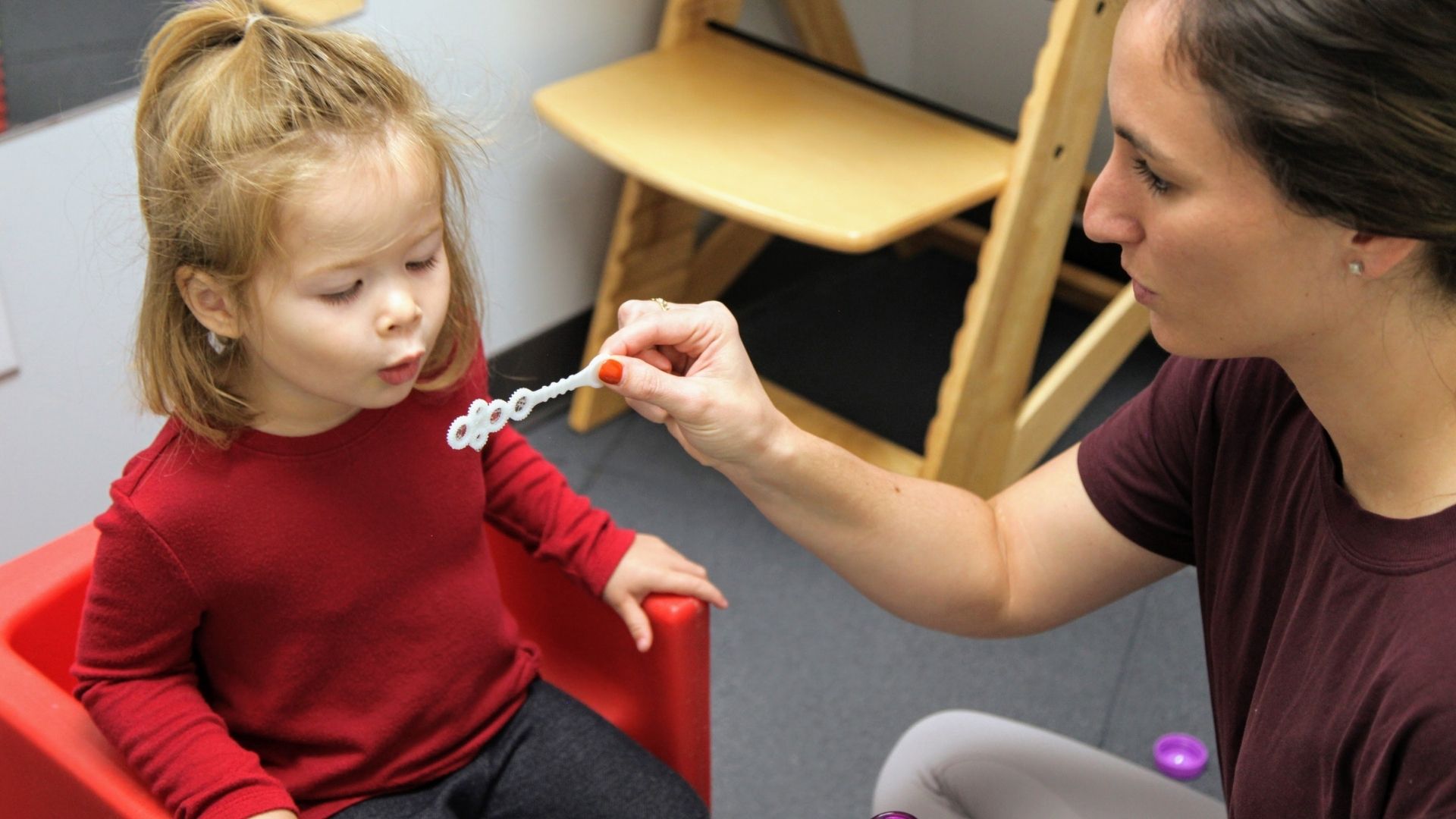Speech Therapy
Language Development
Language Development
This is crucial for expressing and understanding feelings, building relationships, communication, problem-solving, and is the basis for learning to read and write.
Speech/Oral Motor Development
Speech Production
Speech delays and disorders refer to how the body produces sound and can include issues with phonation, resonance, intonation and voice.
Feeding/Oral Motor Development
Feeding & Swallowing
Having a baby or child who does not feed or eat well can be concerning or even scary at times. Let us support you through a sensitive team approach.
Speech Therapy
Start with a ConsultationLanguage
Language Development
This is crucial for expressing and understanding feelings, building relationship, communication, problem-solving, and is the basis for learning to read and write.
Challenges might include:
- Doesn’t respond to her name, expressions or gestures
- Late talker
- Understanding words & gestures
- Auditory information
- Eye contact problems
- Building friendships
- Flexible thinking
- Academic comprehension or grammar
- Cognitive or social language challenges post-injury
Speech/Oral Motor Development
Speech Production
Speech delays and disorders refer to how the body produces sound and can include issues with phonation, resonance, intonation and voice.
Speech production can include issues with:
- Motor planning & articulation
- Producing clear speech
- People cannot understand my child
- Specific diagnosis of apraxia
- Hearing loss & deafness
- Stuttering, oral motor, voicing or resonance differences
- Speech intelligibility & sequencing post-injury
Feeding/Oral Motor Development
Feeding & Swallowing
Having a baby or child who does not feed or eat well can be concerning or even scary at times. Let us support you through a sensitive team approach.
Challenges might include:
- Bottle or breastfeeding
- Choking, gagging or vomiting during mealtimes
- Dysphagia
- Unable to safely eat or drink age-appropriate foods & liquids
- Picky eater or food refusal
- Oral motor problems
- Overly messy during meal times
- Chewing and swallowing post-injury
- Weakness such as uncoordinated tongue movement
Communication & healthy eating begin at birth.
At SPACE, we believe that being able to communicate effectively opens a child’s world by improving:
- Social skills
- Self-esteem
- Academic success
- Cognitive development
From recognizing how an infant calms to her mother’s voice to supporting an adolescent to make friends at school, our speech pathologists use knowledge of the whole child and the family to take the right steps for success!
%
of U.S. children have a communication or swallowing disorder
%
of these affected children received intervention services in the past year
%
of U.S. children have a communication or swallowing disorder
%
of these affected children received intervention services in the past year

How Does Speech Therapy Help Children?
Common benefits of Speech Therapy include:
- Increased social skills
- Improved articulation
- Reduced stuttering
- Increased confidence
- Improved cognitive ability
- Safe swallowing and feeding
- Developing conversational skills
- Increased academic success
- Ability to maintaining relationships
- Improved Self-regulation
- Better quality of life
- Greater vocabulary
- Reduced anxiety
Myths About Speech & Language
MYTH: Children who don’t express themselves have intellectual disabilities. There can be many reasons for speech and feeding delays, which makes intervention crucial.
MYTH: Children will outgrow delays. While some kids might catch up, playing a ‘wait and see’ game increases the likelihood of other issues like problems with reading and writing and even bullying.
MYTH: Speech therapy is only for teaching you how to talk. 93% of language is nonverbal. Speech therapy works on all communication, feeding and social development.

Meet Our Speech Therapy Team
Our speech pathologists start with building relationships with your family. At SPACE, speech and feeding progress naturally because our therapists inherently make treatment fun and engaging whether on a swing, at a table, or with a group of friends. In addition to intensive training in the DIR/Floortime® Model, our SLP’s are industry leaders, consistently seeking the most effective and up to date treatment to add to their therapy “toolkit.” Our goal is that your child is successful in and outside of our speech session.
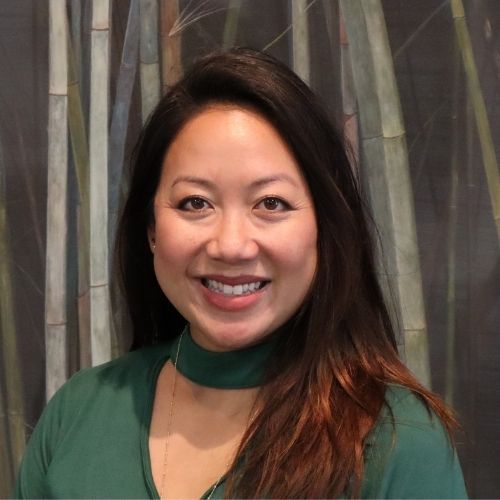
Vanessa Chan-Felcman,
Co-Founder, M.A., CCC/SLP
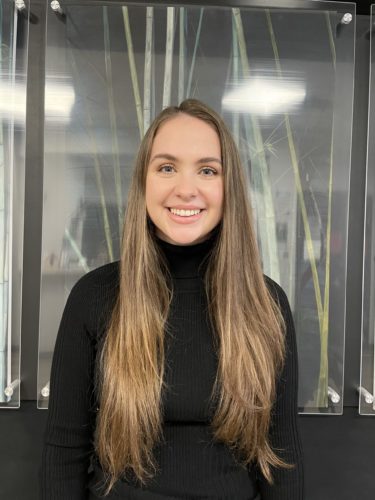
Madison Gilbert, MS CCC/SLP
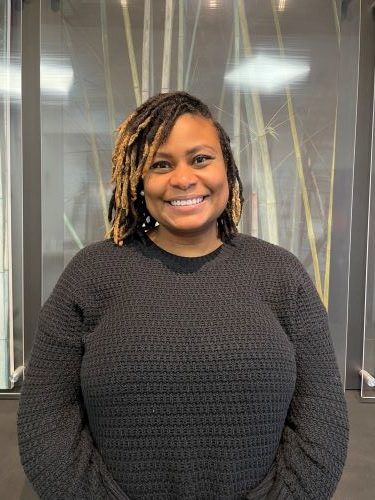
Deondra Williams, MS CCC/SLP
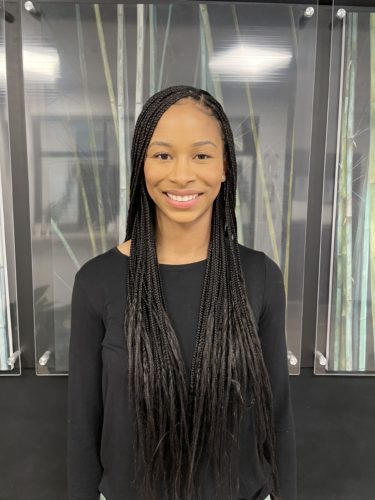
Kenya Pye, M.S. CCC-SLP
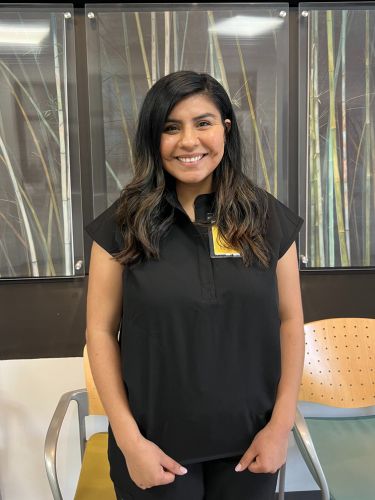
Monica Ramirez, MS, CCC/SLP

Madison Gilbert, MS CCC/SLP

Monica Ramirez, MS, CCC/SLP

Deondra Williams, MS CCC/SLP

Kenya Pye, M.S. CCC-SLP
What You Can Expect at SPACE.
We build trust and motivation right from the start. Whether your child is struggling to communicate or is a picky eater, our first goal is to make you and your child feel safe and welcome. Our therapists work very closely with caregivers to understand your goals, educate you on the process and come up with solutions that serve your family best. We collaborate and communicate with you every step of the way so you will feel right at home.
Your First Visit
Our first goal is to always build rapport with you & your child so that a positive relationship begins to develop. The safer your child feels at SPACE, the faster progress will begin! Initial evaluation may include standardized assessments, clinical observations and a caregiver report.
Ongoing Treatment
Treatment in a private room, classrooms, open gym, or outside
Caregiver/Parent Training
Expect HOMEWORK!
Dyad or social groups
Collaboration with team members & outside professionals
SPACE ST 'Toolkit'
DIRFloortime®
SOS Approach to Feeding
Certified Lactation Counseling
PROMPT Technique
Hanen Approach
Talk Tools Approach to Feeding and Oral motor
PECS and other Assistive Technology
Your First Visit
Our first goal is to always build rapport with you & your child so that a positive relationship begins to develop. The safer your child feels at SPACE, the faster progress will begin! Initial evaluation may include standardized assessments, clinical observations and a caregiver report.
Ongoing Treatment
Treatment in a private room, classrooms, open gym, or outside
Caregiver/Parent Training
Expect HOMEWORK!
Dyad or social groups
Collaboration with team members & outside professionals
SPACE ST ‘Toolkit’
DIRFloortime®
SOS Approach to Feeding
Certified Lactation Counseling
PROMPT Technique
Hanen Approach
Talk Tools Approach to Feeding and Oral motor
PECS and other Assistive Technology
Let's Talk!
Questions? Comments? Give us a call or send us a message below! We’d love to assist you and your family find your SPACE at our SPACE.

